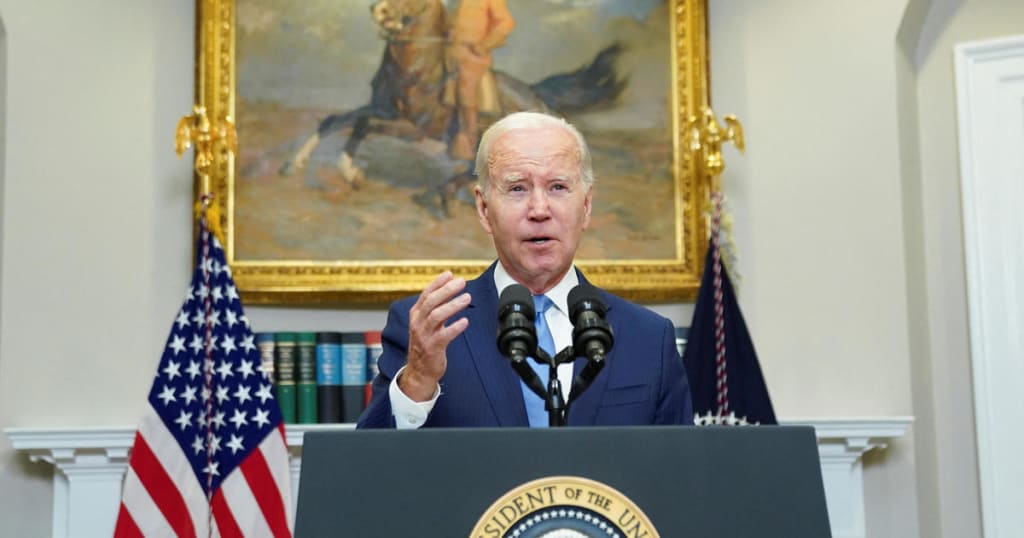Biden says he's "confident" U.S. "will not default" as debt ceiling talks continue
U.S. "will not default" as debt ceiling talks continue

President Joe Biden said on Wednesday that he is "confident" the U.S. "will not default" on its debt as talks with congressional leaders continue.
The U.S. government is expected to hit its debt limit on October 18, and without action by Congress, the government would be unable to pay its bills and would default on its debt.
Biden has been urging Congress to raise the debt ceiling, but Republicans have so far refused to do so. They argue that the debt ceiling is a Democratic problem and that the party should raise it on its own.
Biden has said that he is willing to negotiate with Republicans on other issues, but that he will not agree to raise the debt ceiling without a vote in Congress.
"I'm confident that we'll get the agreement on the budget and America will not default," Biden said at the White House.
The talks between Biden and congressional leaders are ongoing, and it is unclear when an agreement will be reached. However, Biden's comments on Wednesday suggest that he is optimistic that a deal will be done before the deadline.
A default on the U.S. debt would have a devastating impact on the economy. It would lead to higher interest rates, a decline in the stock market, and a recession. It would also damage the U.S.'s reputation as a reliable borrower and could lead to a loss of confidence in the dollar.
It is in the best interests of both Democrats and Republicans to reach an agreement on the debt ceiling. A default would be a disaster for the country, and neither party wants to be blamed for it.
It is still too early to say whether an agreement will be reached, but Biden's comments on Wednesday suggest that he is hopeful that a deal can be done.
The United States is currently in the midst of a debt ceiling crisis. The debt ceiling is a statutory limit on the amount of money that the federal government can borrow. The current debt ceiling is $31.4 trillion. The government is expected to reach the debt ceiling on June 1, 2023. If the debt ceiling is not raised or suspended, the government will not be able to pay its bills and will default on its debt.
A default on the U.S. debt would have a devastating impact on the U.S. economy and the global economy. It would lead to a sharp increase in interest rates, a decline in the value of the dollar, and a recession. It would also damage the U.S.'s reputation as a safe haven for investors.
The Biden administration and congressional Democrats have been negotiating with Republicans to raise or suspend the debt ceiling. However, Republicans have so far refused to cooperate. They argue that the debt ceiling is a tool for Democrats to force Republicans to accept their spending priorities.
The debt ceiling crisis is a serious threat to the U.S. economy and the global economy. It is essential that the Biden administration and congressional Democrats reach an agreement to raise or suspend the debt ceiling before June 1.
Here are some of the potential consequences of a U.S. debt default:
A sharp increase in interest rates
A decline in the value of the dollar
A recession
Damage to the U.S.'s reputation as a safe haven for investors
A U.S. debt default would be a major financial crisis. It would have a devastating impact on the U.S. economy and the global economy. It is essential that the Biden administration and congressional Democrats reach an agreement to raise or suspend the debt ceiling before June 1.





Comments
There are no comments for this story
Be the first to respond and start the conversation.